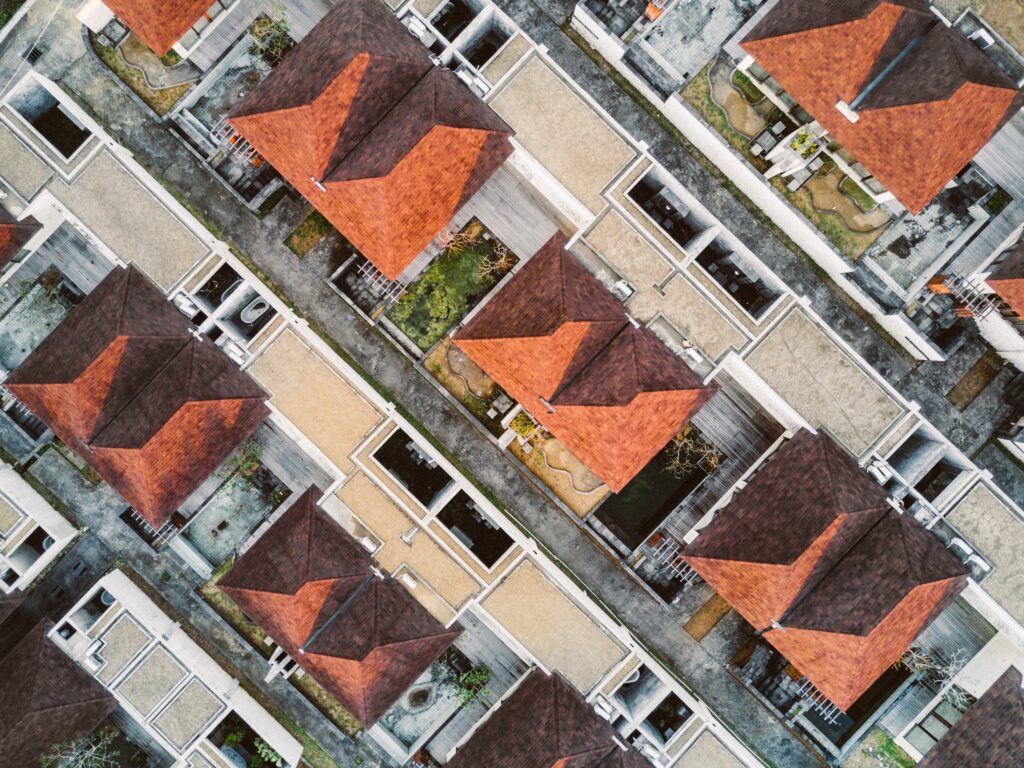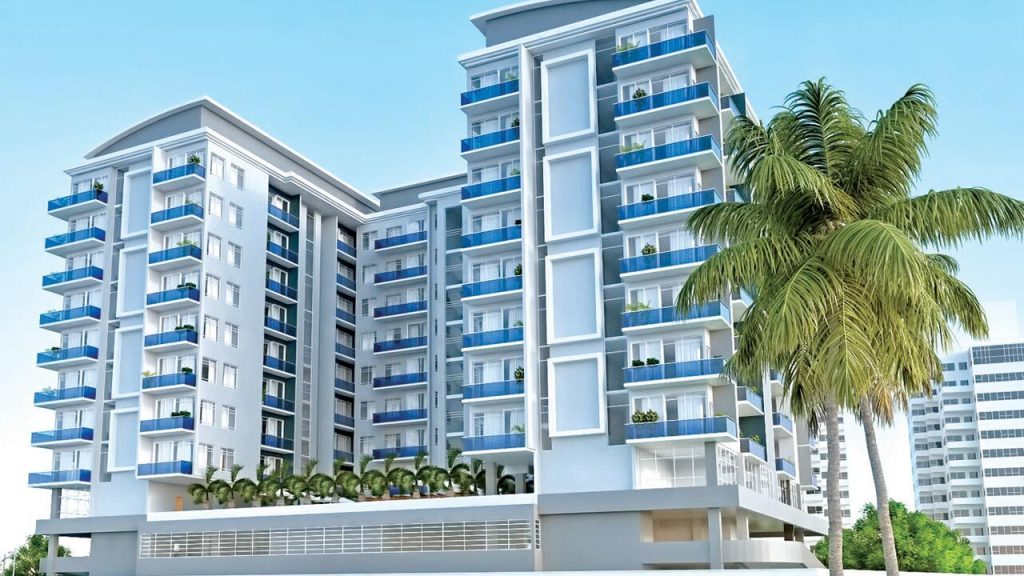Over the last few years, the Nigerian real estate market has seen massive changes and growth. With a population of over 200 million people, Nigeria’s housing market and landed properties market presents many opportunities for real estate investors and homebuyers.
In this article, we will take an in-depth look at the current trends in the Nigerian real estate market for 2024 and what they mean for you as an investor or homebuyer.
Before we begin, a quick disclaimer: This is not investment advice, the goal of this article is to inform and provide you with valuable insights that will help you make informed decisions about the Nigerian real estate market. So, let’s dive in!
1. The Growth of the Nigerian Real Estate Market
We cannot overemphasize the massive growth of the Nigerian real estate market is currently experiencing, in terms of the increase in the numbers of players (investors & stakeholders) this growth is driven by factors such as increasing urbanization, rising disposable incomes, and a growing middle class.
As more and more people move into cities in search of better job opportunities, the demand for housing in these areas has naturally skyrocketed. This has led to a surge in real estate development and investment, particularly in major cities such as Lagos, Ibadan, Abuja, and Port Harcourt.
2. A shift towards Affordable Housing and Landed Properties.

We all know that the cost of living in Nigeria is on the rise, and many individuals and families are struggling to keep up.
With the increasing cost of housing, transportation, food, and basic utilities. Many Nigerians are now seeking out more affordable housing options, such as apartments, townhouses, landed properties, and other low-cost housing options to address this issue.
This presents a unique opportunity for real estate investors to tap into a lucrative market with eager buyers or tenants. investors can not only meet the growing demand for affordable housing but also reap the benefits of a growing market that is expected to continue to expand in the coming years.
Investors looking to take advantage of this trend should consider investing in low-cost housing projects, such as apartments, townhouses, landed properties, or even single-family homes.
These projects can be designed and built to meet the needs of the growing number of Nigerians seeking affordable housing options, providing a steady stream of rental income for investors.
In 2022 and 2023 we have seen a steady growing trends of Many investors pouring a huge amounts of capital into areas like Ibeju-lekki and Epe of lagos, as landed properties are still relatively cheap.
3. The Shift toward Luxury Housing.

On the flip side and in direct contrast to the growing demand for affordable housing and landed properties in Nigeria, many Nigerians are still buying luxury properties and houses. For some, owning a luxury home is seen as a status symbol and a sign of financial success. And luxury homes often offer a level of comfort and security that is not available in more affordable homes.
This is particularly true for high-end communities in Lagos and Abuja… that offer gated access, 24-hour security, and other upscale amenities.
Additionally, many luxury homes are located in desirable areas like Lekki, Maitama, Ikoyi Etc, with close proximity to desirable landmarks like good schools, shopping centers, and other amenities.
This makes them attractive to families who are looking for a comfortable and convenient place to live. Furthermore, luxury homes are often built to high standards and are more likely to be well-maintained, making them more appealing to those who are looking for a high-quality living experience.
Despite the challenges posed by the economic hardship in Nigeria, the demand for luxury housing remains strong. Developers are responding to this demand by building more luxury homes, many of which feature upscale amenities such as swimming pools, gymnasiums, and security systems.
4.The Rise of Real Estate Investment Companies.
Another trend that has emerged within the the Nigerian Real estate sector is the rise of new real estate investment companies. And there is a new type of real estate investment company in this space, aimed at revolutinzing the way people invest in the real estate market.
Ever heard of Co-Ownership? its the when Instead of buying a property outright, an individuals can invest in a real estate by co-owning a property trough a tokenized investment. This allows them to benefit from the appreciation of property values without having to bear the full cost of ownership.
Many young Nigerians are drawn to this form of investment, because its digital, innovative, low cost and low risk.
Real estate investment companies are typically run by experienced professionals who have the knowledge and skills necessary to maximize returns and minimize risk. This is particularly important in the Nigerian market where the real estate sector is still relatively unregulated and there are many potential pitfalls for the unwary.
The rise of real estate investment companies has also led to increased accessibility to affordable landed properties, especially in areas like Ibeju Lekki and Epe.
By pooling resources, investment companies are able to purchase large plots of land and develop them into affordable housing developments. This has made it easier for many Nigerians to own their own homes, regardless of their financial situation.
5. The Growing Importance of Technology in Real Estate.

Technology is playing an increasingly important role in the Nigerian real estate market. From online property portals like nigerianpropertycenter.com that allow buyers and renters to search for properties, to virtual reality technology that allows developers to showcase their projects in a new and innovative way, technology is helping to transform the real estate industry in Nigeria. As technology continues to advance, it is likely that it will play an even greater role in shaping the future of the Nigerian real estate market.
For buyers, technology has made it easier to find properties that meet their specific needs and preferences. They can now use websites and mobile apps to search for properties, compare prices, and even make an offer, all from the comfort of their own homes. Additionally, virtual tours and 360-degree view technologies allow buyers to take a virtual walk-through of properties, giving them a better idea of what the property is like before they visit in person.
For sellers, technology has made it easier to reach a wider audience and market their properties more effectively. They can now use websites and mobile apps to list their properties and reach potential buyers from all over the world. Additionally, the use of drone technology has allowed sellers to create stunning aerial footage and panoramic views of their properties, providing buyers with a unique perspective that was not possible before.
Overall, the growing importance of technology in the Nigerian real estate market is providing new opportunities and making it easier and more convenient for people to buy and sell real estate. As technology continues to evolve, it is likely that it will play an even greater role in the future of the Nigerian real estate market.
Conclusion
The Nigerian real estate market is undergoing a period of rapid growth and change, driven by factors such as increasing urbanization, rising disposable incomes, and a growing middle class. From the shift towards luxury housing to the rise of real estate investment companies, to the growing importance of technology in the industry, there are many trends to watch in the Nigerian real estate market. Whether you are an investor, a homebuyer, or simply interested in the industry, it is an exciting time to be involved in the Nigerian real estate market.



